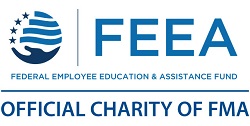In This Issue Legislative Outreach What's Affecting Feds? Agency Outreach Get Involved At These Events! | FMA Washington Report: May 9, 2025 This report provides an update on issues affecting federal managers. As always, I encourage you to visit www.fedmanagers.org on a regular basis for more information on these and other matters. Also, be sure to look for the monthly FMA Grassroots Update, where we offer links to action letters and FMA-PAC matters we do not address in the Washington Report. The grassroots newsletter is sent exclusively to non-governmental email addresses to avoid any Hatch Act violations. If you are not receiving it, contact the national office to provide your non-governmental email address. Please feel free to provide feedback any time by emailing Greg Stanford at gstanford@fedmanagers.org, or by calling the National Office at (703) 683-8700. Thank you for your membership in FMA. It’s an honor to represent your interests before Congress and the administration. Legislative Outreach Reconciliation Markup Includes Dramatic Cuts to Federal Employee Retirement Benefits In accordance with the Republican budget blueprint, passed by the House of Representatives in April, the Oversight and Government Reform Committee marked up its portion of the bill on April 30, advancing proposals that would significantly cut federal employee retirement benefits. The committee passed its portion of the bill by a vote of 22-21. The cuts are part of the broader effort to pay for President Trump’s “One big, beautiful bill,” aimed at extending the 2017 tax cuts, enhanced border security, defense spending, and energy dominance. The House-passed budget reconciliation directions require the Oversight and Government Reform Committee to provide $50 billion in cuts over the next 10 years. The following cuts are included in the current House language: What's Affecting Feds? President Trump’s FY 2026 Budget Proposal Freezes Pay for Federal Employees Federal employees will see a pay freeze in 2026 based on President Trump’s initial budget request for Fiscal Year 2026. The “skinny” budget proposal, released on Friday, May 2, is a precursor to a more robust budget request expected to be unveiled later this month. Additional federal employee issues are anticipated to be included in the more detailed budget proposal. A pay freeze would prevent salaries from growing in line with inflation, and the Federal Salary Council reported in November 2024 that federal workers already earn nearly 25 percent less than their private sector counterparts. Feds received a 4.6 percent pay raise in 2023, followed by a 5.2 percent boost in 2024 and a 2 percent raise for this year. While the administration’s budget request does not include any mention of a pay raise, the budget request is only one piece of the process for determining a pay adjustment for federal employees. Congress typically addresses a pay raise as part of the Financial Services and General Government Appropriations funding bill. Separately, FMA has strongly endorsed the Federal Adjustment to Income Rates (FAIR) Act (H.R. 493 / S. 126). The FAIR Act, sponsored by Rep. Gerry Connolly (D-VA) and Sen. Brian Schatz (D-HI), would provide an average 4.3 percent pay raise in 2026. Agency Outreach Trump Extends Federal Employee Hiring Freeze On April 17 President Trump extended the hiring freeze he implemented on January 20 for an additional three months to July 15, 2025. The hiring freeze prohibits filling vacant federal civilian positions or creating new ones. The hiring freeze applies to most agencies with exemptions for immigration enforcement, national security, and public safety. The freeze also prohibits contracting outside of the federal government. The Department of Defense has exemptions for “mission-essential employees into positions that directly contribute to our warfighting readiness,” according to Secretary of Defense Pete Hegseth. Exemption authorities should be used “to sustain the workforce at readiness-centric facilities including, but not limited to, shipyards, depots, and medical treatment facilities,” Hegseth wrote. Schedule Policy/Career – Formerly known as Schedule F – Takes Shape The Trump administration took formal steps in April to create a new classification of federal employees – Schedule Policy/Career – that would make an estimated 50,000 federal employees “at-will,” stripping them of existing due process rights. The Office of Personnel Management (OPM) proposed a new rule titled “Improving Performance, Accountability and Responsiveness in the Civil Service,” pursuant to President Trump’s January 2025 executive order. Under the proposed rule, federal employees whose jobs are deemed as “policy-determining, policy-making, policy-advocating, or confidential duties” would be reclassified into Schedule Policy/Career, losing civil service protections. These employees will be “at-will,” stripped of adverse action procedures or appeals. In a fact sheet, the administration says, “this rule empowers federal agencies to swiftly remove employees in policy-influencing roles for poor performance, misconduct, corruption, or subversion of presidential directives.” The fact sheet says reclassified employees are “not required to personally or politically support the president,” but “must faithfully implement the law and the administration’s policies.” This proposed rule does not immediately move these feds into the new classification system; feds will be moved there via a different executive order after the final rule is issued. Social Security Administration Commissioner Confirmed On Tuesday, May 6, the U.S. Senate confirmed Frank Bisignano as Social Security Commissioner by a vote of 53-47. He was sworn in the following day as the 19th Commissioner of the agency. Prior to taking the reins at the Social Security Administration (SSA), Bisignano was Chairman and CEO of Fiserv, a payments and fintech company that processes more than $2.5 trillion in payments per day, per his testimony before the Senate during the confirmation process. His previous professional experience includes stints as chairman and CEO at First Data Corp., co-chief operating officer for JPMorgan Chase, and various roles at Citigroup. “President Trump has been clear about Social Security. We will protect it,” Bisignano said in a statement. “We will make the Social Security Administration a premier organization.” Relief and Retroactive Payments for WEP and GPO In Process On February 25, the Social Security Administration (SSA) updated its information on the implementation of the Social Security Fairness Act, legislation FMA helped pass to repeal both the Government Pension Offset (GPO) and the Windfall Elimination Provision (WEP). Specifically, SSA announced the agency would begin to pay retroactive benefits that week, and former FMA National Secretary Dick Oppedisano confirmed he has received a payment. "If a beneficiary is due retroactive benefits as a result of the Act, they will receive a one-time retroactive payment, deposited into the bank account SSA has on file, by the end of March. This retroactive payment will cover the increase in their benefit amount back to January 2024, the month when WEP and GPO no longer apply," the agency states. SSA cautions impacted beneficiaries to wait until April 2025 before contacting SSA with concerns about the status of their retroactive payments, as the process will proceed incrementally. Get Involved At These Events! OPM, Connolly recognize Public Service Recognition Week Public Service Recognition Week (PSRW), launched in 1985, is coming to a close. The annual week to honor and acknowledge the nation’s 23 million public servants, including all federal managers, was marked by a statement from the Office of Personnel Management and a congressional resolution offered by Rep. Gerry Connolly (D-VA). “We are tremendously grateful to our federal employees and recognize their commitment to public service,” said OPM Acting Director Chuck Ezell. “During Public Service Recognition Week, we especially recognize federal employees as the backbone of a functioning government and this strong nation.” Rep. Connolly, the Ranking Member of the House Committee on Oversight and Government Reform, introduced a resolution in the House, cosponsored by 14 members of Congress. |
---


